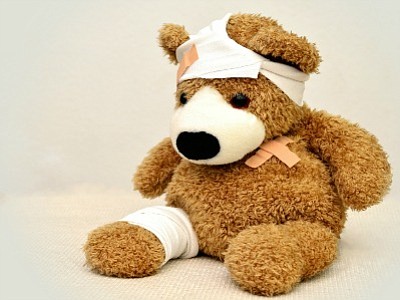As the music blared the latest pop hits, kids ran back and forth in the afternoon sun. The gathering had all the energy of a block party — but it wasn’t.
Sunday’s donation drive in the Atlanta suburbs was for Puerto Rico, still struggling in the aftermath of Hurricane Maria.
Sofia Arroyo is Puerto Rican. News of the devastation to her home island moved her to action. Arroyo doesn’t run a registered charity nor is she a social worker. In fact, she doesn’t have any experience in this sort of thing at all. Normally she works a traditional 9-to-5 marketing job.
“I saw that there were lots of folks trying to raise supplies here and there in small groups,” she told CNN. “So I thought, why not combine them all?”
That’s how “Puerto Ricovery” was born.
The group is really not much more than Puerto Ricans living in Atlanta; they’re restaurant owners, local business leaders and private individuals. The common denominator is their drive to help families back home.
Arroyo is one of the people arranging everything, from collecting and stockpiling supplies to transporting the goods.
“We have worked with U-Haul to store some of our donations,” she explained, and “an anonymous commercial airline donated space on two flights for our supplies.”
Arroyo said the group also “reached out to the office of the governor and first lady to make sure our supplies were going to be properly received and distributed.”
“I didn’t want our supplies to get stuck at the airport or the ports,” she said.
The situation in Puerto Rico is still chaotic.
“A couple of days ago the only officials that we had on the ground were a very small of handful of people close to the governor,” explained Luis Dávila, deputy director of the Puerto Rico Federal Affairs Administration.
Dávila has heard of several efforts like Arroyo’s — volunteers just sending aid to the island — but not all of them are as organized.
“Most of the people are putting ‘United for Puerto Rico’ [on the aid they send] to identify it as aid and supplies,” Davila said.
“They understand it’s linked to the government so that’s what most of them put on the slip.”
Arroyo, who is in touch with the governor’s office, carefully navigated the situation.
“[The governor’s office] told us who to address the shipments to and they even told us how to categorize the shipments.”
Arroyo’s “Puerto Ricovery” already sent two shipments to the island and has packed five more shipping containers.
“It’s about knowing the supplies are making it into the hands of people that need it,” she said. “We don’t just want to collect some supplies and send them off not knowing what happens to them.”
Some donors echoed that sentiment as the reason they went with this small grassroots effort instead of a larger charity.
“It’s the personal touch,” said Charis Hanbery, who was dropping off some toiletries.
“I wanted to make a personal connection.”
For others, the inefficiencies of some organizations in previous crises played a role.
“I don’t want to give to [a large charity] because of what I saw in Haiti,” explained James Keller, who was donating food.
But for many of the volunteers and Puerto Rico natives at the event, Puerto Ricovery was simply about doing everything they could.
“I have done all of it. I have donated, I have sent stuff to family members and, I guess, I just want to do something physical, too,” explained volunteer Maria Martin, who moved to the mainland from Puerto Rico in 1971.
Holding back tears, she added: “It’s frustrating to watch and not be able to do anything.”
